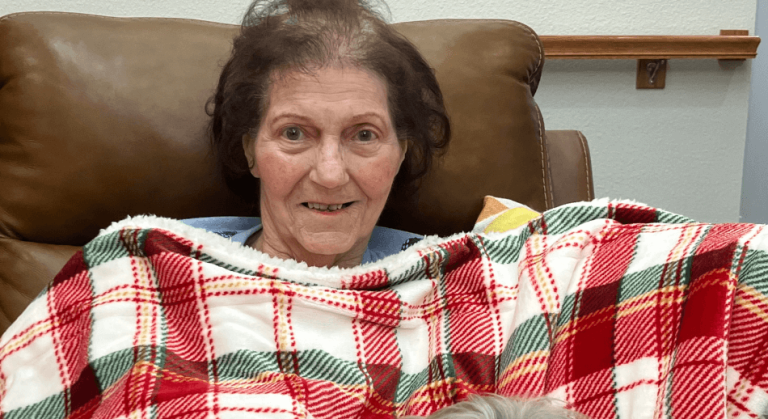Supporting Your Loved One with Alzheimer’s When Words Fail
If you care for someone with Alzheimer’s disease, you know communication can become a hurdle. Conversations might feel frustrating, and the connection you once shared seems to fade. But remember, communication isn’t just about words. It’s about finding new ways to express love, understanding, and support. Let’s explore some strategies that can make a big difference.
Step into their world.
See through their eyes: Try to understand their perspective. Are they feeling confused, disoriented, or maybe lost in a happy memory? This empathy will guide your communication approach.
Focus on feelings, not facts: Facts and details might be easily forgotten, but emotions linger. Pay attention to their body language, facial expressions, and tone of voice.
Speak with simplicity and clarity
Short sentences, simple words: Break down your thoughts into easy-to-understand chunks. Avoid complex vocabulary and long explanations.
One question at a time: Don’t overwhelm them with multiple questions or instructions.
Keep it present-focused: Talk about what’s happening right now, not past events that might be confusing.
Listen actively and patiently
Give them your full attention: Put away distractions like your phone and make eye contact. Let them know you’re fully present.
Offer reassurance: Let them know you’re there to listen, help, and keep them safe.
Validate their feelings: Don’t argue or try to correct them. Acknowledge their emotions and show them you understand.
The power of nonverbal communication
Touch is powerful: A gentle touch on the arm, hand, or shoulder can speak volumes of love and support.
Facial expressions: Smile warmly and make eye contact to show you care and create a positive atmosphere.
Soothing sounds: Play calming music from their favorite era or sing familiar songs together to create a sense of comfort and spark memories.
Let familiar objects spark memories
Photo albums become memory books: Look through old photos together and reminisce about happy times. Encourage them to share stories about the pictures. Favorite music ignites the past: Play music from their youth and sing along if they can. Music can be a powerful trigger for memories and emotions. Belongings bring comfort: Surround them with familiar objects that bring feelings of security and connection, like a favorite blanket, a cherished photo, or a well-worn piece of jewelry.
Activities speak louder than words
Engage their senses: Fold laundry together, look through old photo albums, or cook a simple meal side-by-side. Focus on the activity itself and the joy of doing something together, rather than achieving perfection. Focus on enjoyment, not perfection: Don’t worry about mistakes or setbacks. Let them participate as much as possible and celebrate their efforts.
Remember, communication is a two-way street
Listen for their cues: They might not be able to express themselves clearly with words, but their body language and emotions tell a story. Pay attention to nonverbal cues like sighs, furrowed brows, or smiles.
Be patient and persistent: It takes time and effort to find new ways to connect. Don’t get discouraged if communication doesn’t happen instantly.
Here are some additional tips to keep in mind
Maintain a calm and positive environment: A calm atmosphere can help reduce anxiety and confusion.
Create routines and schedules: Routines and schedules provide a sense of comfort and familiarity, which can be especially helpful for someone with Alzheimer’s.
Take care of yourself! Being a caregiver can be emotionally and physically demanding. Make sure you get enough rest, eat healthy foods, and seek support from friends, family, or support groups. Communicating with someone with Alzheimer’s disease might be different from how you used to connect, but it can still be a meaningful and enriching experience.
By focusing on building a strong emotional bond, comfort, and shared moments, you can create a new kind of connection that goes beyond words. Do you have any questions or experiences you’d like to share? Contact Beehive Homes of Rowlett! We can all learn from each other on this journey.







